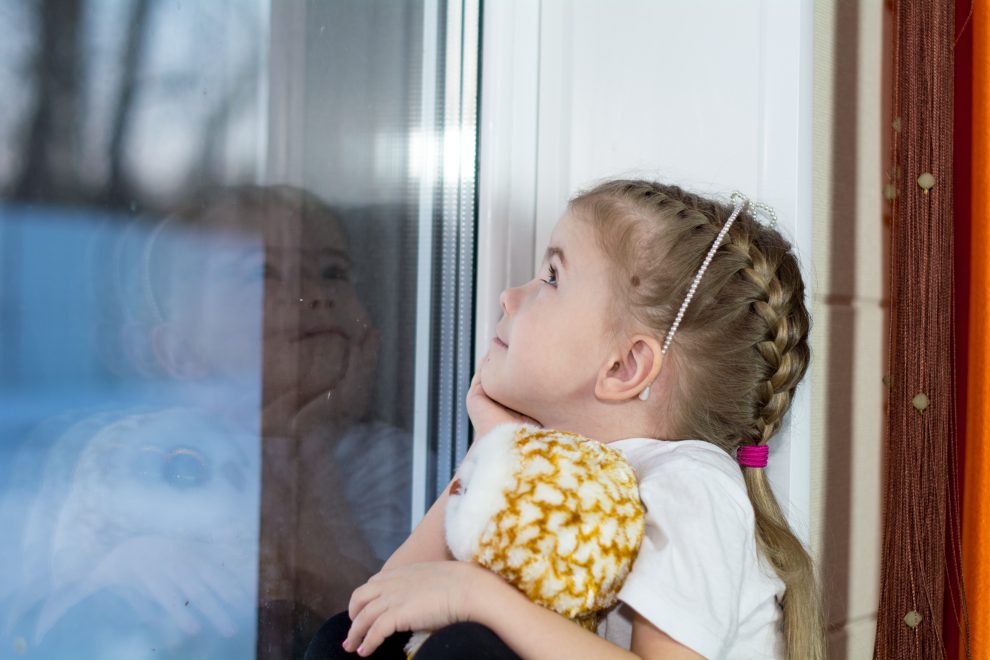Anyone who has ever driven more than 60 miles with small children in the car, sat in a pediatrician’s office with a toddler eagerly anticipating their end-of-well-check lollipop, or told their four-year-old too far in advance about their upcoming birthday party knows that waiting is really, really hard for kids. Heck, anyone who has ever gone to the DMV knows that it’s hard for adults, too.
But like many of the other frustrating or painful aspects of life—traffic jams, head colds, disappointments at work, breakups—waiting is inevitable. While it might seem like the nuisance of waiting is just something to suffer through, waiting has several emotional, spiritual, and relational benefits. And with the right attitude and approach, waiting can even be—dare I say it?—fun.
Nothing showcases the benefits of waiting quite like the season of Advent.
A season of waiting
Advent is the liturgical season consisting of the four Sundays and corresponding weekdays leading up to the great feast of Christmas, a time at which we celebrate the coming of God into the world. We remember God’s incarnation in the person of Jesus; we reflect on the Spirit’s presence today in the people and circumstances we encounter; and we look forward to Christ’s second coming at the end of time.
We wait for Christmas during the season of Advent, but (theoretically) not in an impatient, fidgety kind of way. Instead, we hopefully anticipate the delight that lies ahead of us. Looking forward to something is the way that I would describe waiting when that which we’re expecting is something good. Likely, we don’t hopefully anticipate interacting with the grumpy DMV worker while we endure a seemingly interminable line of disgruntled patrons. But a sweet treat following a flu shot? A tree surrounded by presents? Those we can get excited about.
Why wait? It will make you happier
Indeed, according to happiness researcher and writer Gretchen Rubin, looking forward to something is key to complete enjoyment of a joyful event, because anticipation enables us to bring happiness into our lives long before the actual event takes place. Advent gives us a specific window of time for, as well as rituals that help us lean into, the delight of anticipating Christmas.
Looking forward to something—thinking about the happiness that awaits us—provides us with its own form of pleasure; in addition, the acts of preparation can sometimes be as gratifying as the thing for which we are preparing. For instance, and for children especially, baking cookies and decorating the Christmas tree can be as much or more fun than eating cookies in front of the decked-out tree. In this way, even as Advent points us to the future which we await, the season also calls us to remember and hold the beauty of the present.
Even when the waiting Advent entails isn’t especially beautiful or fun, it still has its merits.
The discipline of waiting
Waiting gives us the opportunity to practice delayed gratification, an exercise that serves both the body and the brain. Perhaps you have heard of the Stanford Marshmallow Experiment, a study conducted in 1972 in which young children were offered the choice between one small, immediate reward (a marshmallow) or two small, delayed rewards (two marshmallows). In the study, a researcher left children ranging from 3 1/2 to 5 1/2 alone in a room with a single marshmallow, and each child was told that if they could wait 15 minutes without eating the marshmallow, they’d get a second treat. As expected, some children immediately gobbled up their single marshmallow, and others managed to delay their gratification. In follow-up studies, researchers found that the children who could wait had much better life outcomes, including higher educational attainment, better relationships, and less problematic behavior.
In the decades since the original study, replications have demonstrated that economic background, rather than an individual’s willpower, account for approximately half of the better outcomes of the children who earned the second marshmallow. The children who delayed gratification were able to do so because the adults in their lives had the time and spaciousness to help them cultivate self-discipline, which is another way of saying that systemic injustice has at least as much—and likely, much, much more—to do with poorer life outcomes than one’s inherent morals and abilities.
But awareness of the impacts of external circumstances doesn’t undermine the positive value of traits like patience and self-discipline. Cultivating the ability to wait for satisfaction is a worthwhile endeavor at any age of life.
Rituals of anticipation
Advent, like the Marshmallow test, gives us the opportunity to practice waiting. We deck the halls but wait to open presents. We unbox the nativity, but refrain from placing Baby Jesus in the manger until the vigil of Christmas. We sing “O Come, O Come Emmanuel,” and delay listening to “Joy to the World”. As we do all of this we slowly but surely develop virtues like patience, contentment in the present, restraint, and gratitude for what is already here.
I’m a mom of three, and I’ve often said that one of the benefits of having multiple children is that the presence of siblings naturally teaches children that they are not the center of the home, let alone the universe. For instance, my 3-year-old has to wait for a snack because I’m feeding her baby brother, and my 4-year-old doesn’t get to play her first choice of game because it’s her sister’s turn to decide. Brothers and sisters aren’t the only way to curb solipsism, but they might be the easiest.
Advent, too, is not the only way to teach kids how to delay gratification, that preparation itself can be joyful, and that anticipation bolsters enjoyment, but it sure is an easy—not to mention meaningful, fun, and spiritually fulfilling—way.
Image: Unsplash














Add comment